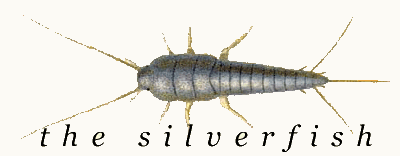Information Professional Spotlight:
An Interview with Lynn Kanne
By Kaijsa Calkins
I recently began working as a reference assistant at Seattle Central Community College and have had the opportunity to work with some great reference librarians. Because I am interested in community colleges and think they are cool places to work, I sat down with Lynn Kanne, a librarian at Seattle Central Community College, and asked her about her job.
Lynn went to library school here at the University of Washington. Her first professional job as a librarian was a temporary, full-time position at Suzzallo Reference. This is Lynn’s sixth academic year at SCCC. Before coming to SCCC, she also worked at a busy public library for three-and-one-half years.
I asked Lynn if she wanted to work in a community college when she was in school. When she was in library school at UW, she did some collection development projects at North Seattle Community College. I also asked her what library school coursework she draws on most often in her professional life. While she said the classes all start to blend together after a few years, she did say that cataloging has come in handy. Even though she has never worked as a cataloger, she has always drawn on her knowledge of catalogs when teaching students to search the catalog effectively.
When I asked Lynn how working at a community college differs from the university, she told me that the type of student she works with at the community college is different than at the university. The students she saw at Suzzallo had attained a level of proficiency and confidence that community college students may not always have. Many SCCC students need help with the process and concepts of research, while the upper-level undergraduates and graduate students at Suzzallo have more questions about resources. Lynn said it is interesting to work at the process level.
About her job, Lynn says, “You get to be creative, decide how and when to do things, and build relationships.” The library at SCCC is a small, so it is easy for Lynn to see how she has made a difference over time, compared to the larger systems at the university and the public library where she found it harder to make an impact.
According to Lynn there is also a big difference between the public library and the community college. At a public library, she gave people the information they needed, making them happy and giving a sense of completion to the reference transaction. At SCCC, she gives students tools, but they have a lot more work to do. Lynn added that at the public library, she did reference and little else, but that it was “great boot camp” for reference work.
Lynn said the best thing about her job is the variety of work she does. She is always working on multiple projects, each requiring different skills. Lynn especially enjoys working directly with students in reference and teaching. She also likes projects involving writing. Lynn coordinated writing the textbook for Library 101, the credit class all SCCC librarians are involved with.
When comparing the university library to the community college, Lynn said there are only five librarians at SCCC, compared to hundreds at the UW, all with their specialties. At SCCC, librarians are involved in the larger institution beyond their roles in the library. At community colleges, librarians are considered faculty, which gives them a different kind of involvement in the school.
I closed the interview by asking Lynn why iSchool students should consider working at community colleges when they graduate. She thinks community colleges embody the best of both the academic and public library worlds. Librarians get to work with a variety of people and questions, but in an academic environment. Her advice for future reference librarians is to do fieldwork and be serious about it. Show the librarians you work with what you can do and demonstrate the kind of professional you will be.
|

Kaijsa Calkins is a second year student in the day MLIS
program.
|

